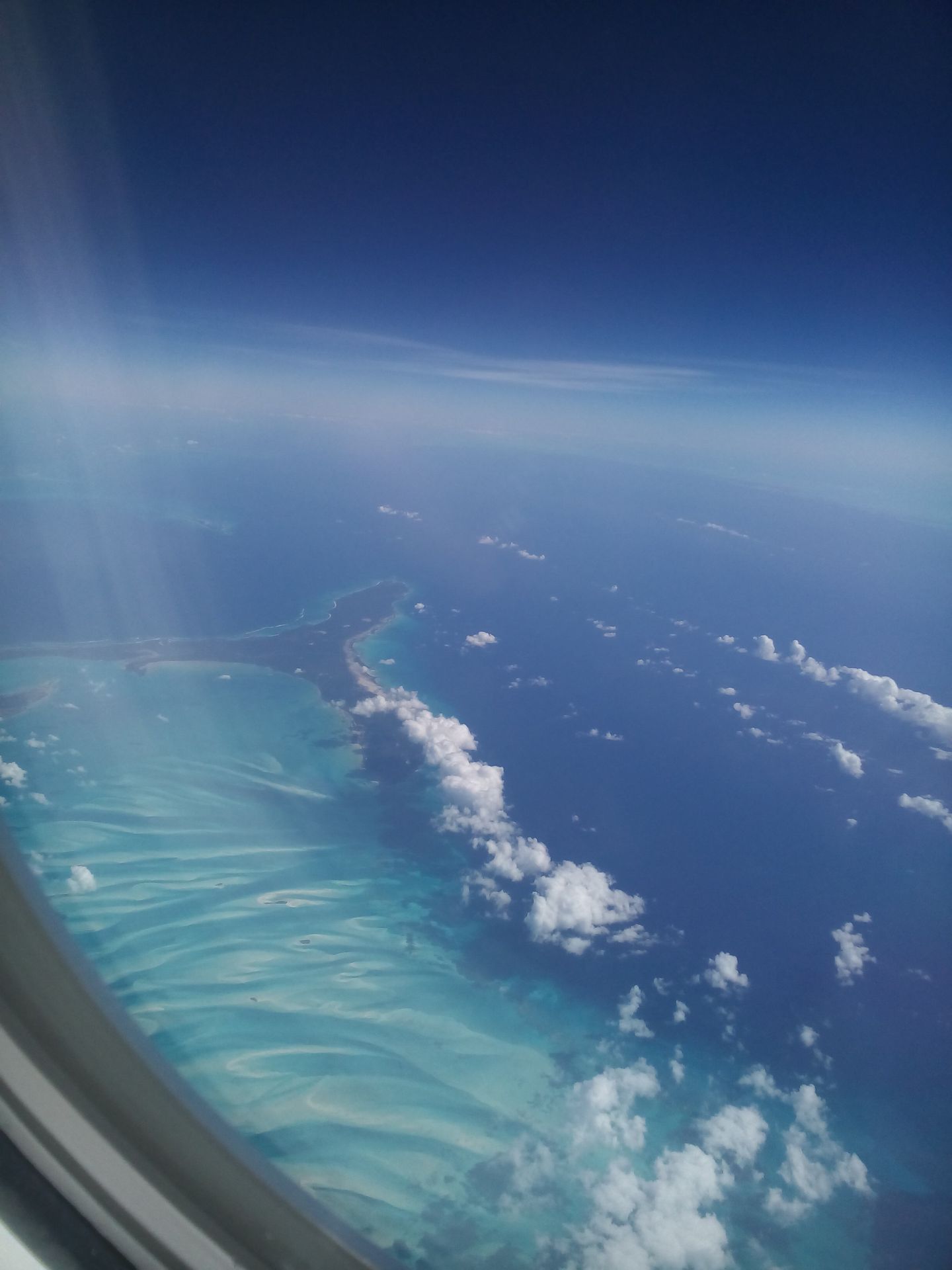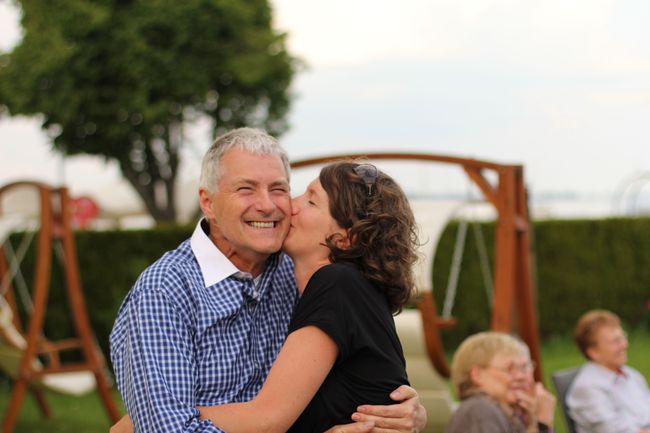Social, Practical, Risk-taking
प्रकाशित: 31.03.2019
समाचार पत्रिका के लिए सदस्यता लें
Today is Saturday, March 30, 2019. We have definitely had a perfect Saturday so far: breakfast, market visit, Lindy Hop event, and now afternoon coffee. All of this could have taken place in Hannover in this order. But then we certainly wouldn't have had breakfast in a parking lot, bought fruit at the Maori Pacific market in Oatara, or danced Lindy with New Zealanders in Cornwell Park! 😉 I am sitting with a camper coffee (homemade latte, as a New Zealander recently assured me) on the meadows in front of the Auckland Museum and thinking that I could now write down my impressions of the local 'society' for you. I wanted to do this for a while because the New Zealanders impress me. But before I go on, please keep in mind that all of this is just an 8-week tourist bubble insight.
Even as a frequent island visitor (greetings to Ameland), I hadn't thought about what impact island life has on a population: you can at least try to control and manage what comes in and out of the country and still stay somewhat to yourself. The New Zealanders do this extensively with their pest control, trying to control their (wild) animal population and ensure the purity of waters. For us, this cost at least 30 minutes at the airport because they thoroughly inspected our tent for pests. On every hiking trail, you are asked to clean your shoes, on the ferry you are informed about how to navigate when changing waterways.
So you have to take care of your land because you can't leave so quickly. 😉 I also didn't realize until now that Europeans are envied because we can supposedly hop across national borders quickly: from London to Paris for breakfast and then to Rome for dinner... (I didn't dare mention the topic of personal environmental impact as a frequent flyer this year during this conversation! 😉)
Likewise, before departure, I hadn't considered that the New Zealanders are a really small population. 4.8 million... That's like Berlin plus two times Hannover! Spread across two islands. That means A) more space and still B) getting along well with each other. And they do it excellently, in my opinion. That's why I admire this people.
How do I recognize that?
Volunteer work: I have the impression that it is natural to engage in some form of volunteer work: delivering meals to seniors, working in the local neighborhood library, taking care of the penguin bay, supervising a campground, knitting blankets for the orphanage... And it's not just the stereotypical faces, as we often get the impression with the Red Cross team, for example (that was a bit mean, I think it's good to get involved!), but the commitment extends across all sectors of the population. Work is not so highly valued, people do not define themselves so much by how they earn their money. And if they have enough, it's perfectly fine to travel around with their camper. There are many small projects based on the commitment of individuals, small groups, or neighborhood organizations, such as urban gardening, food festivals, book exchange stations,... This makes many things more personal and colorful.
Children: Even though I haven't fully grasped the school system yet and find the school uniforms for girls really ridiculous, children are highly valued. There are great, well-maintained, creative playgrounds everywhere, extensive sports facilities, pipes and ramps for scooters and skaters, free fruit for children in supermarkets, bags that you can take in the big malls when the little ones can't go on anymore, and probably many more things that we as travelers without children haven't noticed.
As a fan of gastronomy, I have to mention the advantages of New Zealand cuisine! Society also shows itself in 'food culture,' right!? Ok, the food itself is usually not particularly noteworthy. If you like it sweet or fatty, you're in luck.😉 For 'healthy,' they tend to lean towards Asian cuisine or hope for a trendy café. But I like the organization! For example, there is everywhere, completely naturally, free water!!! You can take it yourself, it's placed on the table, outside of the gastronomy in the city at drinking fountains... And there is no tipping! The servers are simply so nice, they earn enough, you don't have to ponder back and forth at the end, you just go to the counter and pay! Relaxed! They are totally against introducing tips.
You have to be quick or, rather, early when it comes to drinking coffee. Most places close around 4 p.m. I still haven't figured out why they are particularly attached to garden markets! And if you have had coffee so early, you can also have dinner early! Very likeable! No grumbling stomach until 9 p.m. like in the Mediterranean or South American region! 'Tea' is also served as dinner as early as 6 p.m.
When it comes to food, I can also discuss food prices! Food here is quite expensive. But except for the prices of beer and wine (I still don't understand why they make the local products so expensive), I actually think it's okay. Food in Germany is way too cheap. And that has many negative consequences, as we all know. Particularly good New Zealand typical foods: there is wonderful muesli everywhere, the New Zealanders also seem to be a nation of muesli eaters! There is really delicious chocolate in great varieties! Still really good meat! Fish and mussels! Many supermarkets have a great nut counter! Yummy! 😋
In the city centers, at the harbor, in large squares, there are alcohol ban areas everywhere. Drinking alcohol outside of restaurants is not allowed there 24/7, making these areas very pleasant places.
I also find the New Zealanders' sense of practicality very likeable! I believe they are not yet world champions in waste reduction and recycling, everything still seems a bit complicated, but I have never seen so many second-hand shops, op-shops (used goods stores for discarded household items, like our fair department stores), or book sales/giveaway or swap shelves.
My theory, and thus back to my little societal analysis: I actually believe that the New Zealanders are a nation of social educators: they enjoy getting along well with each other. They establish many rules and regulations and ensure that people adhere to them. But they do this often with a touch of humor. They engage in community work. They also see themselves as a community and take responsibility! Which German tourist would simply go out during the day on a campsite on the Baltic Sea and collect rubbish to keep the place clean!?
In the newspaper last weekend, there was an article about a young man who left his drunk buddy at the harbor. The police called on us to take better care of our friends!
The New Zealanders have an interesting mix of over-caution and a high willingness to take risks. They declare simple hiking trails to be super dangerous areas with 'multiple hazards,' but they also create fun diving boards and platforms directly at the harbor basin or forget a railing or balustrade in front of an abyss here and there.
This mixture is also found in the habit of going barefoot everywhere! I have never seen so many children and adults walking barefoot everywhere: on the street, in the supermarket, in the pub... I don't know if it's healthy, but they surely balance it out with their jogging craze. I have never seen so many people jogging at all times of the day and night! It also seems to be part of New Zealand culture. It's not necessarily done alone. We learned in Auckland that the world's first jogging club was founded there!
As for 'practical and well-organized,' I'm repeating myself when I rave about the supply of clean, free public toilets throughout the country. And I wonder what a New Zealander traveling in Europe thinks when they have to use a public restroom in one of our cities or have to pay 70 cents for a value coupon at a gas station.
On a different note, coffee! 😉 I'll end it here for today and visit the toilet nearby!
Wait, but there's one more thing I must quickly mention because it has also impressed me and it nicely summarizes the attitude of many New Zealanders: New Zealand has taken in Syrian refugees! Under pressure from the population, who felt responsible and wanted to get involved. People could apply, the reasons for fleeing and personal backgrounds were carefully examined, and then they accepted 600 people. With a good integration program!
At least 2 of them were killed in Christchurch 15 days ago. 'You should have been safe here' was a widely quoted reaction from the population. But more on that in the next post!
समाचार पत्रिका के लिए सदस्यता लें
उत्तर


